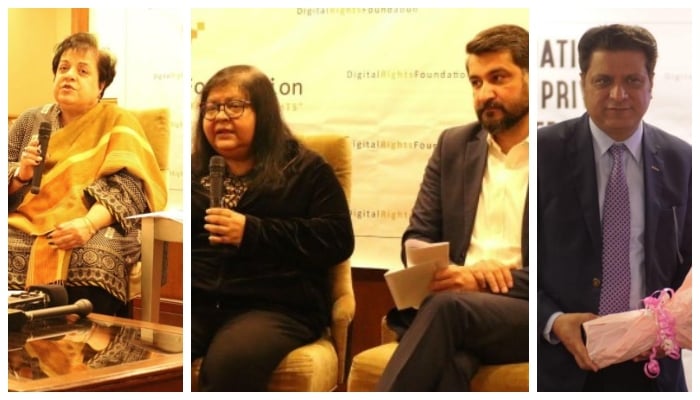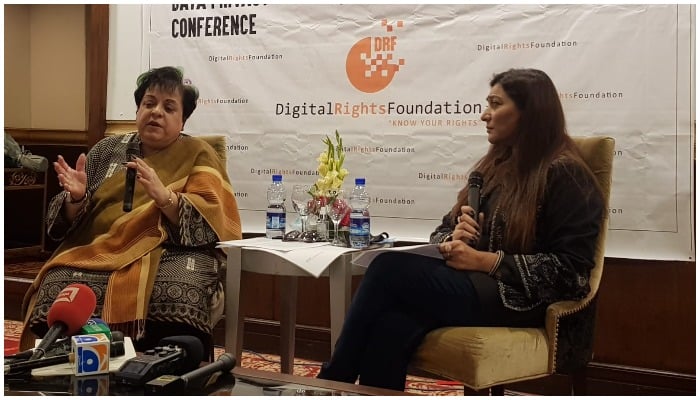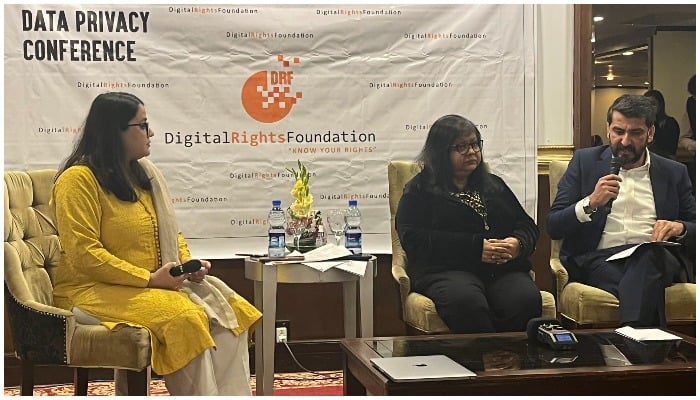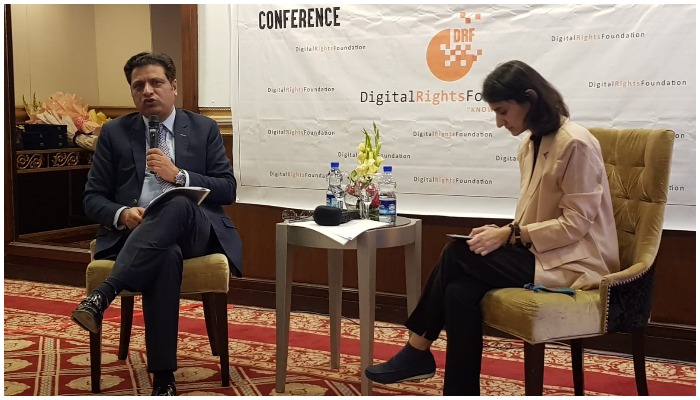Right to privacy is a fundamental human right: Shireen Mazari
Citing Noor Mukadam's murder case, Mazari says that “privacy is even more important for women"
November 24, 2021

Minister for Human Rights Shireen Mazari on Wednesday said that the "right to privacy is a fundamental human right, but the right needs to be balanced with other competing rights."
She was speaking during a panel discussion on “privacy from a human rights perspective”, which was part of the 8th annual National Data Privacy Conference organised by the Digital Rights Foundation (DRF).
Aside from Mazari, the conference brought together experts from various sectors, including the Ministry of IT and Telecommunication, the National Database and Registration Authority (NADRA), and other relevant stakeholders.
Mazari went on to say that “privacy is even more important for women," and cited the example of the Noor Muqadam case, saying that some mainstream media outlets aired footage that caused much distress for her family.

She said that the government has introduced new amendments to violence against women laws that now ensure the privacy of the victim of violence so that their dignity could be preserved.
The minister also spoke about the "Protection of Journalists & Media Professionals Bill and called it a "landmark achievement" of the PTI-led government.
"The bill includes inputs from all major journalist bodies and senior journalists from Pakistan,” she said.
During the second half of the panel, Usama Khilji, the Director at civil society organisation Bolo Bhi, stressed the importance of a strong commission for privacy and said “We need a privacy commission that is independent of the proposed privacy commission. It should be separate from the government that can hold the state and powerful actors accountable.”
Drafting the data protection legislation
Another panel discussion that took place during the conference centred around data protection legislation.
The panel included Bilal Abbasi, the Director IT of the Ministry of IT and Technology and Jehan Ara, Founder and CEO of Katalyst Labs.
Speaking on the occasion, Abbasi said that the IT ministry has been working on the Personal Data Protection Bill since 2017, but the first draft was "not as human rights friendly."

He said that the current version of the law, which has been drafted under the rule of the PTI, reflects international best practices, such as the GDPR while taking into account Pakistan’s local context.
On the other hand, Jahan Ara highlighted that “a strong personal data protection law needs to apply both to the public and private sector because public bodies hold large amounts of data on citizens.”
How private is the digital ID in Pakistan
Another panel discussion on "how private is the digital ID in Pakistan," featured Tariq Malik, the Chairperson of NADRA, who highlighted the importance of data protection laws in Pakistan.
"Data protection law in Pakistan is [crucial] to ensuring the standardisation of data privacy practices in the country as an important part of the “social contract between citizens and the government”.
He highlighted that sections 28 and 29 of the NADRA Act provide legal safeguards against privacy breaches and NADRA is moving towards the anonymisation of personal data.

The event also included a keynote address from the Nighat Dad, the Executive Director of DRF, who stated that “the right to privacy is a fundamental right, however, the digital age requires a detailed and nuanced discussion that includes all stakeholders, including the state, businesses, civil society, and ordinary citizens.”











